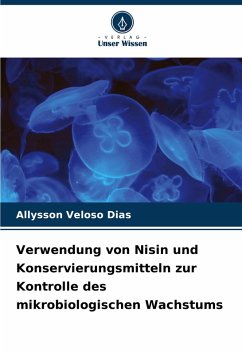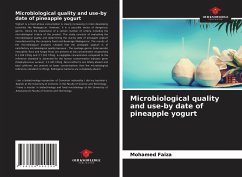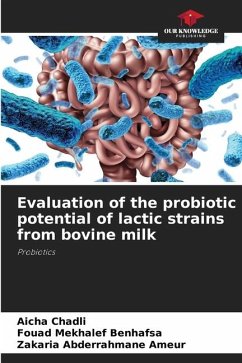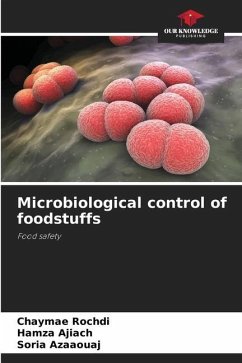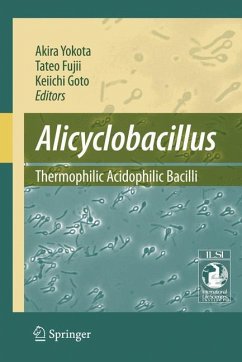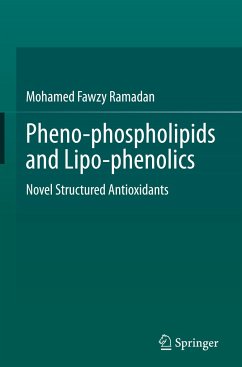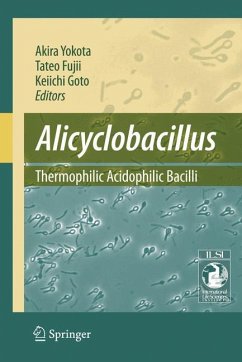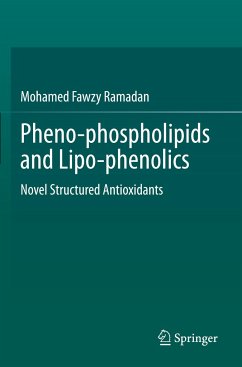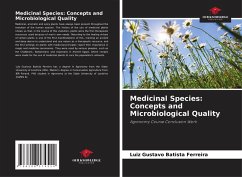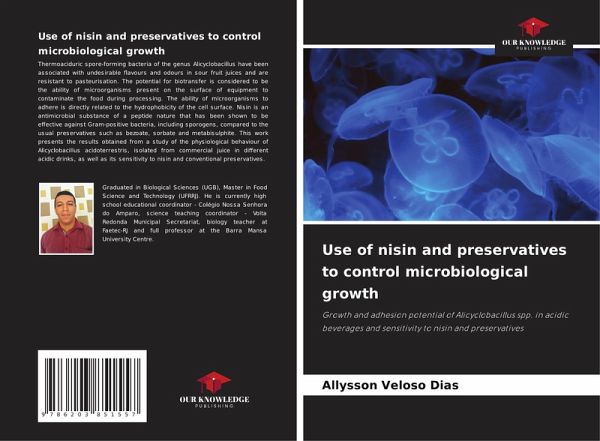
Use of nisin and preservatives to control microbiological growth
Growth and adhesion potential of Alicyclobacillus spp. in acidic beverages and sensitivity to nisin and preservatives
Versandkostenfrei!
Versandfertig in 6-10 Tagen
24,99 €
inkl. MwSt.

PAYBACK Punkte
12 °P sammeln!
Thermoaciduric spore-forming bacteria of the genus Alicyclobacillus have been associated with undesirable flavours and odours in sour fruit juices and are resistant to pasteurisation. The potential for biotransfer is considered to be the ability of microorganisms present on the surface of equipment to contaminate the food during processing. The ability of microorganisms to adhere is directly related to the hydrophobicity of the cell surface. Nisin is an antimicrobial substance of a peptide nature that has been shown to be effective against Gram-positive bacteria, including sporogens, compared ...
Thermoaciduric spore-forming bacteria of the genus Alicyclobacillus have been associated with undesirable flavours and odours in sour fruit juices and are resistant to pasteurisation. The potential for biotransfer is considered to be the ability of microorganisms present on the surface of equipment to contaminate the food during processing. The ability of microorganisms to adhere is directly related to the hydrophobicity of the cell surface. Nisin is an antimicrobial substance of a peptide nature that has been shown to be effective against Gram-positive bacteria, including sporogens, compared to the usual preservatives such as bezoate, sorbate and metabisulphite. This work presents the results obtained from a study of the physiological behaviour of Alicyclobacillus acidoterrestris, isolated from commercial juice in different acidic drinks, as well as its sensitivity to nisin and conventional preservatives.



